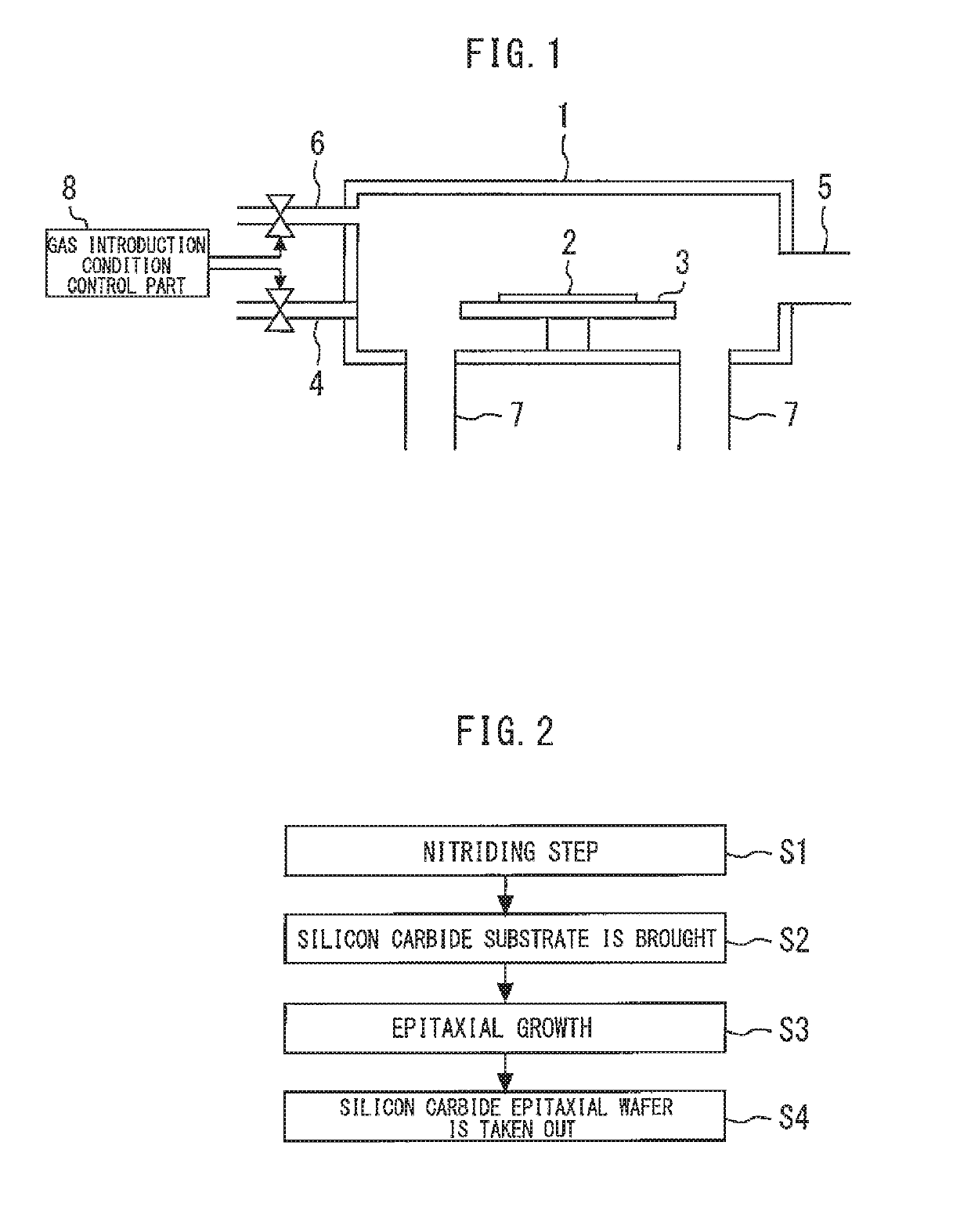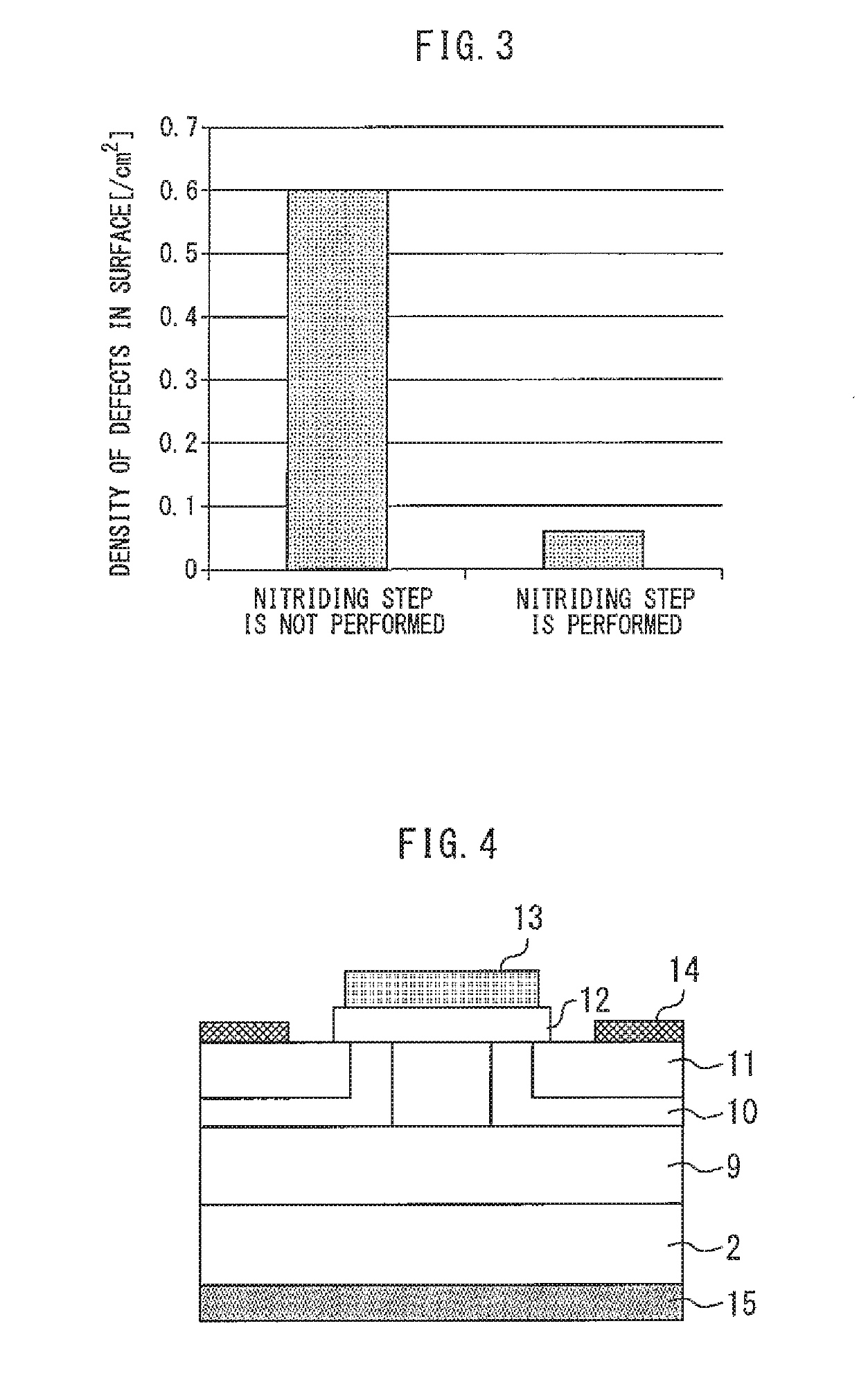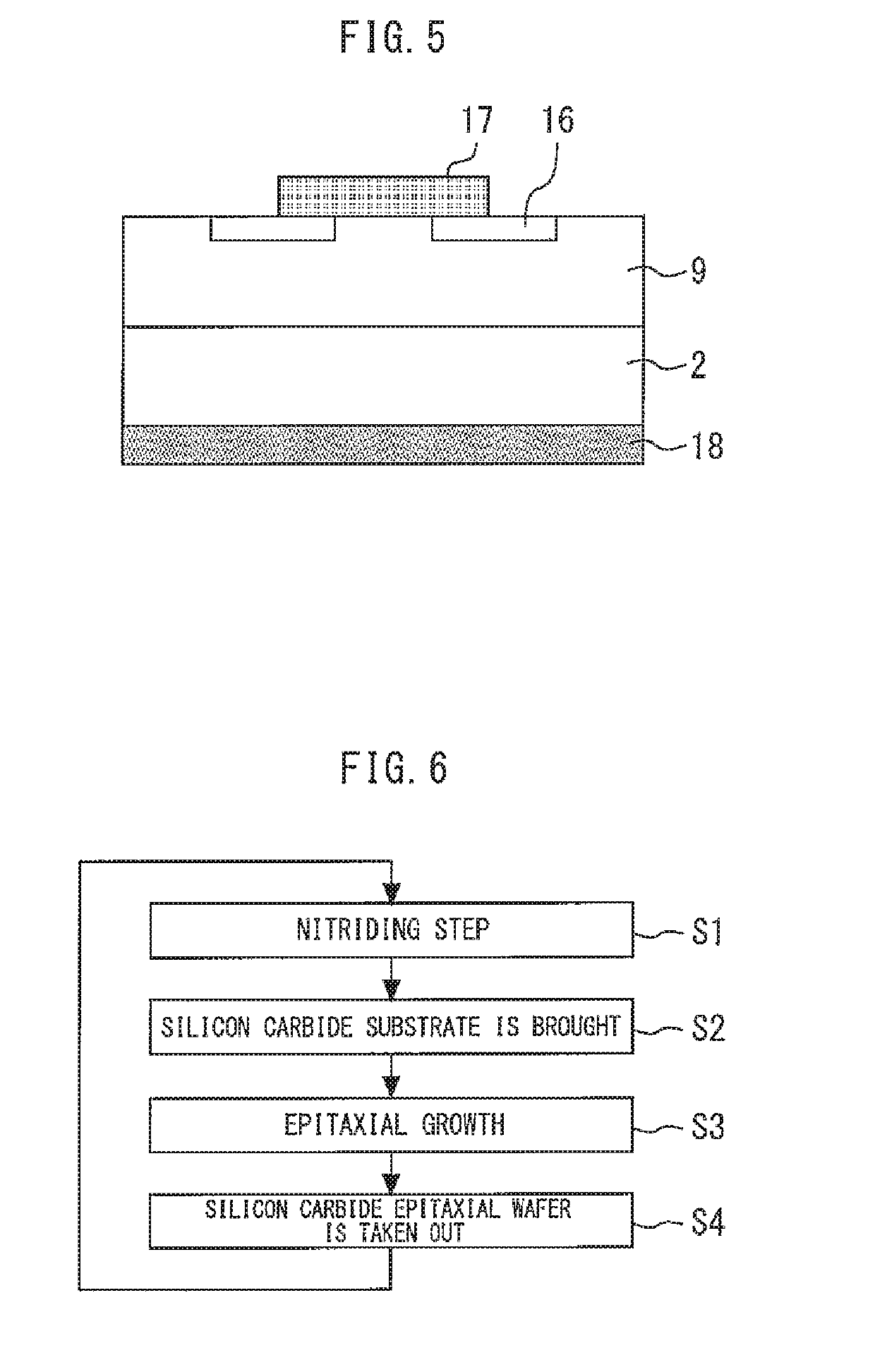Silicon carbide epitaxial wafer manufacturing method, silicon carbide semiconductor device manufacturing method and silicon carbide epitaxial wafer manufacturing apparatus
a silicon carbide and epitaxial wafer technology, applied in the direction of polycrystalline material growth, chemically reactive gas growth, crystal growth process, etc., can solve the problems of reducing device yield, generating leak current, and forming carbide particles, so as to achieve fewer crystal defects
- Summary
- Abstract
- Description
- Claims
- Application Information
AI Technical Summary
Benefits of technology
Problems solved by technology
Method used
Image
Examples
first embodiment
[0020]FIG. 1 is a sectional view of an apparatus for manufacturing a silicon carbide epitaxial wafer according to a first embodiment of the present invention. A wafer holder 3 on which a silicon carbide substrate 2 is mounted is provided in a growth furnace 1 for performing epitaxial growth. A first gas introduction port 4 leads a carrier gas and a raw material gas into the growth furnace 1 as a process gas for growing a silicon carbide epitaxial layer. The process gas is discharged out of the growth furnace 1 through a first gas exhaust port 5.
[0021]In an epitaxial growth step, a silicon carbide epitaxial layer is formed on the silicon carbide substrate 2. Simultaneously, a silicon carbide epitaxial layer product is also attached to inner wall surfaces of the growth furnace 1, the wafer holder 3 and other members in the furnace and grows dendritically. Structurally weak thin portions of the product in dendritic form are broken and separated due to fluctuations of gas flows at the t...
second embodiment
[0039]FIG. 6 is a flowchart showing a method of manufacturing a silicon carbide epitaxial wafer according to a second embodiment of the present invention. A manufacturing apparatus used in the second embodiment is the same as that in the first embodiment.
[0040]First, steps S1 to S4 are performed, as in the first embodiment. Next, the silicon carbide epitaxial wafer is taken out of the growth furnace 1 and steps S1 to S4 are thereafter repeated, thereby manufacturing a plurality of silicon carbide epitaxial wafers. By alternately repeating the nitriding step and epitaxial growth as described above, the state of bonding of silicon carbide attached to the inner wall surfaces of the growth furnace 1 and the wafer holder 3 can be stabilized at all times. As a result, the deposited film is stabilized in comparison with the case where film forming processing is successively performed a number of times after the nitriding step is performed one time, and a large amount of silicon carbide epi...
third embodiment
[0041]FIG. 7 is a growth sequence showing a method of manufacturing a silicon carbide epitaxial wafer according to a third embodiment of the present invention. Also in the third embodiment, a step similar to the same processing as that in step S3 in the first embodiment is performed, that is, the growth furnace 1 is heated to about 1650° C. and the raw-material gas is thereafter supplied into the growth furnace 1 from the first gas introduction port 4, thereby epitaxially growing a silicon carbide film having a film thickness of 10 μm on the silicon carbide substrate 2. For example, silane gas (SiH4) is supplied at a flow rate of 500 sccm as a Si atom supply source, and propane gas (C3H8) is supplied at a flow rate of 200 sccm as a C atom supply source. Nitrogen gas is used for N-type doping. Nitrogen gas is supplied for N-type doping so that the carrier concentration is 1×1017 / cm3 at the substrate interface and is 8×1015 / cm3 in the active region. Thereafter, supply of the raw-mater...
PUM
| Property | Measurement | Unit |
|---|---|---|
| temperature | aaaaa | aaaaa |
| temperature | aaaaa | aaaaa |
| thickness | aaaaa | aaaaa |
Abstract
Description
Claims
Application Information
 Login to View More
Login to View More - R&D
- Intellectual Property
- Life Sciences
- Materials
- Tech Scout
- Unparalleled Data Quality
- Higher Quality Content
- 60% Fewer Hallucinations
Browse by: Latest US Patents, China's latest patents, Technical Efficacy Thesaurus, Application Domain, Technology Topic, Popular Technical Reports.
© 2025 PatSnap. All rights reserved.Legal|Privacy policy|Modern Slavery Act Transparency Statement|Sitemap|About US| Contact US: help@patsnap.com



